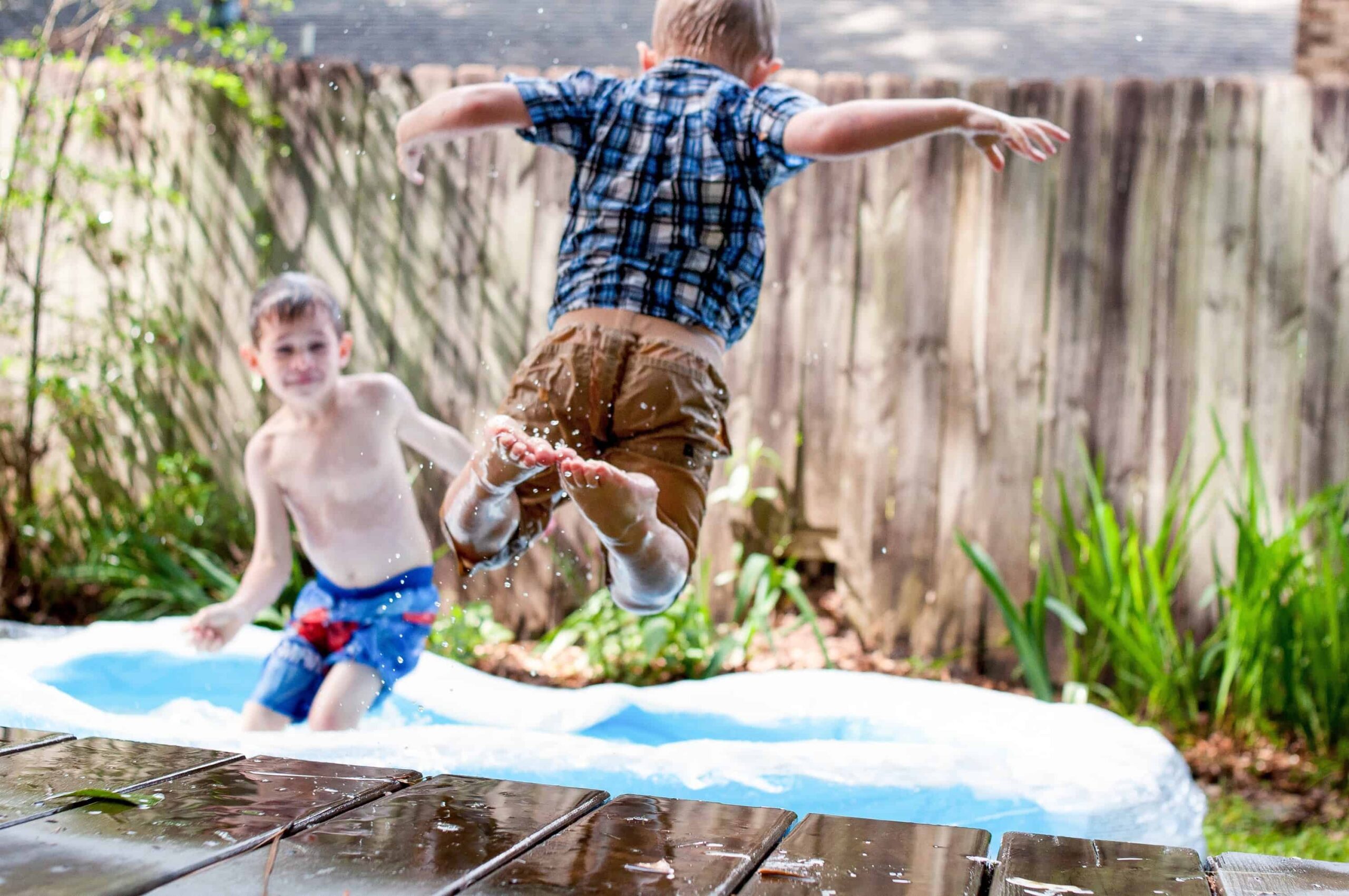Table of Contents
- Since then, there have been countless episodes just like this.
- What is a strong-willed child?
- There are many challenges in parenting a strong-willed child.
- Raising a strong-willed child is an incredible gift.
- How can you parent a strong-willed child without breaking their spirit?
- This is how to discipline a strong-willed child.
- When disciplining a strong-willed child, start by establishing the family rules together.
- Make their life predictable to avoid power struggles.
- Set clear expectations ahead of time.
- Connect then direct.
- Drop ultimatums.
- Wait for cooperation and delay gratification.
- Actively listen and show you understand even if you don’t agree.
- Use timeouts only for extreme cases and be available for support during this time.
- Apologize when you parent out of anger.
- Finally, when disciplining a spirited child, it’s best to avoid:
- A final note about parenting a spirited child
Parenting a strong-willed child is full of ups and downs. These children are outspoken, prone to power struggles, sensitive and even more likely to have meltdowns. At the same time, they’re born leaders, dynamic, and a tremendous source of pride for their parents. Here you will find the key to raising strong-willed children successfully without breaking their spirit including powerful positive parenting strategies.
I remember the first time my daughter showed me just how strong-willed she was.
She was about two months old. Healing from a c-section and wanting to be the best momma possible, I spent my time swallowed up by our old burgundy couch pouring over parenting books. The more I read, the more it seemed that all signs pointed to putting her on a schedule. Figuring these experts were right and demand-feeding my baby every hour and a half or so was bad, I did my best to comply.
I tried what the books said verbatim.

The result?
My spirited baby was irate. She knew what worked for her, and she let me know loud and clear what she wanted. As soon as we went back to the rhythm that worked for her, all was well again.
Since then, there have been countless episodes just like this.
At four months old, she would arch her back when I put her in her grey bucket seat without warning.
At about two-and-a-half, she started insisting on very creative clothing combinations. Think dark navy gumboots with copious amounts of dress-up jewelry on a hot sunny day.
I remember one July day, she decided she wanted to have a yard sale, even though it was pouring rain outside. Nothing I could say would get her in from the rain. It took almost two hours before she admitted it wasn’t the best day to pawn our neglected toys onto the neighbour’s kids.
The truth is my strong-willed daughter is a girl who knows her mind, learns by doing, and is never easily swayed.
But it’s not just her…
Related reading: Parenting a Strong-Willed, Sensitive Child: This is what you need to know
Both my sons are strong-willed too.
Case in point, one day after preschool my son’s teacher told me, “Your son is so agreeable… until he’s not.”
She went on to say that she told my son to clean up the toys he and his friend had been playing with. When he refused, she told him he had to sit on the class couch until he was ready to cooperate.
Apparently, this approach works in a matter of minutes with other students. However, my son was a different story. They entered into a standoff. He refused to comply. 30 minutes later, the end of the school day came and he was still on the couch.
My youngest seems to have similar personality traits. He’s known to wear his fleece penguin pyjamas even though it was a hot summer night (in spite of me setting out his PJ short set), insists bread cut in triangles tastes the best and, my husband and I joke, has all the makings of a great autocratic leader.
Jokes aside, many wonder what is a strong-willed child? Because, of course, all toddlers test boundaries and want independence. So do most teens. Chances are that if you’re parenting a child with fierce determination, you know it.
Still, it’s important to address…
What is a strong-willed child?
- is challenging,
- doesn’t accept instruction at face value,
- is prone to power struggles,
- asks why often,
- is a natural-born leader or trailblazer,
- does not typically succumb to peer pressure,
- will resort to temper tantrums to make their point known,
- is outspoken, and
- has iron-clad focus when her heart is set on something.
Strong-willed kids are spirited and courageous, and they have many personality traits that are very positive. They want to learn things for themselves rather than accepting what others say, so they test the limits over and over. They want desperately to be “in charge” of themselves, and will sometimes put their desire to “be right” above everything else.
When their heart is set on something, their brains seem to have a hard time switching gears. Strong-willed kids have big, passionate feelings and live at full throttle.
Dr. Laura Markham
There are many challenges in parenting a strong-willed child.
Because strong-willed children challenge authority and are fiercely determined, it is impossible to use a one-size-fits-all approach to discipline. It is important to look at the key facets of developmental psychology and engage in problem-solving to find strategies that work best for you and your child.
If you’ve tried lecturing, taking privileges away, or putting them into timeout, again and again, you know how futile it can be. In fact, you may often find yourself in a standoff where he or she will not comply.
The truth is, that strong-willed children do not respond well to being forced to do anything. Not only that but researchers state that forcing undermines moral agency. Demanding good behavior under the threat of various consequences does not inspire a child with a strong will to listen and behave; in fact, the opposite often occurs. Specifically, she is no longer choosing to do right.
Raising a strong-willed child is an incredible gift.
Though parenting a spirited child is challenging and dynamic, it is also such a rich experience. Most parents want to raise children who will stand up for what’s right and be successful. Studies show that strong-willed children are more likely to become great leaders who are willing to do the right thing at all costs.
How can you parent a strong-willed child without breaking their spirit?
The more research that comes forward on these headstrong children, the more we learn that maintaining their spirit is crucial to their lifelong success. Having a strong-willed child is not a bad thing. The key to parenting a strong-willed child comes down to one crucial thing: trust.
When children feel connected to the adults in charge of them and trust they have the child’s best intentions at heart, they behave their best. Children are more likely to act out when they feel misunderstood or disconnected from us. In maintaining a spirited child’s trust, we open them up to understanding and internalizing our values and rules.
So how do we accomplish this? Positive parenting strategies are necessary. Below you’ll find some wonderful tips on how to reinforce or re-establish the trust between you and your spirited child.
Related reading: How to Discipline a Child: Why Science Says This is the Best Approach
This is how to discipline a strong-willed child.

When disciplining a strong-willed child, start by establishing the family rules together.
Because we want to work with, not against our strong-willed child’s attributes, research favours a Socratic approach. This means:
- establish the family rules in a collaborative manner,
- answer questions about rules and expectations as they come up,
- checking for understanding in the child.
In doing this, children feel empowered, involved, and respected. Therefore, they are more motivated to listen and more understanding when disciplined.
Remember though, you are still the adult. You are still in charge, leading the discussion and only agreeing to core rules that make sense for the family.
Make their life predictable to avoid power struggles.
Strong-willed children do not do well when their power is taken away. If they can predict transitions, life will go more smoothly.
Predictability will ease transitions. When days aren’t predictable, you can simply let your child know what the day will look like and what to expect throughout the day by front-loading. They will feel more in control and will be less prone to being defiant and willful.
Set clear expectations ahead of time.
Front-loading is setting expectations or explaining what will come before the heat of the moment. For example, when my kids were younger, I told them before we got to the children’s museum they had to stay close to me and tell me before they wanted to switch stations. This prevented a lot of issues. Other examples could also be:
“Yes, we can go take a peek at the toy section, but we aren’t buying anything today.”
Or, “When we get home, the first thing I want everyone to help unload the car.”
When my kids know my expectations ahead of time, they listen better than when corrected in the heat of the moment. Using the example of unloading the car, they are more likely to cooperate and protest less than if I ask after they have left the car.
Connect then direct.
When a willful child is engrossed in an activity, her only priority is to see it through. When a parent appreciates what the child is doing and then tells the child what to do, she listens better. For example, “I love how much work you’ve put into this drawing,” (connection) “It’s time to put away your markers and set the table” (direction). It can help to also let the child know when he can resume the activity. For instance, “After your homework, you can colour again.”
Related reading: This is How to End Power Struggles With Your Strong-Willed Child
Drop ultimatums.
Strong-willed children want to feel in control more than anything. In keeping with this, an ultimatum can be seen as a challenge rather than a sign to back down. Ultimatums beget power struggles. Instead, work with your child to facilitate cooperation. For example, clean up, problem-solve, or do homework together.
Wait for cooperation and delay gratification.
Often, this is one of the fastest ways to get a willful child to listen. The key is to get present, and remain calm but firm. Everyday examples of delaying gratification include:
- no bike riding until my child’s helmet is on,
- cleaning up before going to the park, or
- not watching TV until the laundry is put away.
When what’s next isn’t gratifying, parents must remain firm in the expectation but flexible on how the task is accomplished. In our own home, this could be:
- making cleaning up a game or competition (i.e. who can clean up faster?).
- working together.
- coming up with a plan and dividing the work.
Actively listen and show you understand even if you don’t agree.

One of the greatest gifts you can give your spirited child is the acknowledgement of how he or she feels. Recognize their strong will and identify what their needs are in that moment. This recognition scaffolds moving forward and creates space to understand the discipline that may follow. Something as simple as paraphrasing what a child has said or labelling her feelings will help her feel more at ease.
Use timeouts only for extreme cases and be available for support during this time.
Timeout shouldn’t be punitive but act as a time to calm down and regroup. There should be no timers because it could take a child seconds to calm down and be ready to problem-solve or a lot longer. With my daughter, this means going into her room with her and hugging her through her big feelings. This helps tremendously with emotional regulation, and it gives my daughter the skills and strategies she needs to be able to do so independently.
Then, we problem-solve together. (Find out more about time-ins/ timeouts here.) For my son, this is a bit different. I bring him into his room and tell him I am available when he needs me. When he’s really upset, he needs space. So I step aside for some time. Once he is ready for me, we hug and talk it out. Timeouts that isolate the child from the parent do more damage to their relationship than to their challenging behaviour.
Apologize when you parent out of anger.
Yelling, getting mad at their crying, or showing other signs of anger can happen to the best of us. Not only does admitting we’ve done wrong model good behaviour, but it also re-establishes trust. Yelling is damaging, and it does not help your child to identify and correct their own disruptive behavior.
Finally, when disciplining a spirited child, it’s best to avoid:
- Force as it undermines moral agency.
- Punishment and lecturing – both undermine the child’s agency, erode trust, and fail to collaboratively problem-solve.
- And, as previously mentioned, ultimatums.
A final note about parenting a spirited child
Parenting a strong-willed child is anything but easy. There is no quick fix. However, by parenting mindfully and maintaining my children’s sense of trust, I can promote their cooperation. Moreover, I can maintain their spirited nature and continue to raise them into strong leaders who can have a positive impact on the world one day.
Check out this bonus resource: 7 Step Parenting Success System














These were some great tips! Raising spirited children can certainly be challenging, but you made a lot of valid points that will be helpful to any parents with these exceptional kids 🙂
Parenting spirited or strong-willed children is not easy at all <3 Thank you so much for reading and for your comment!
Omg! Reading this just made me realize I have a very strong willed daughter and I do get upset with her when she gets upset, I feel horrible I want to be the best mom I can be for her , are there any books I can read to help me understand her? Thank you so much for this article.
I have a strong willed ten year old daughter, and I loved “You Can’t Make Me (but I can be persuaded)” by Cynthia Tobias. I listened to the audio book and loved it! Highly recommended! We’ve also done a year of counseling, and I was amazed on how much I learned about her and how she thinks. I thought she was the whole problem and she needed all of the help, but I learned a lot of strategies to help me understand and approach her. I wish I’d done it when she was younger!
I parented an extremely strong willed child. He is 24 now. I can tell you that he is widely acknowledged to be one of the most respectful, respected, responsible, hard working young man people in our circles know. Raising him was the hardest thing I’ve ever done. But, over the years, from various people in our lives, I received much of the advice that you give here. Sticking to it, being consistent, changed our relationship from confrontational to trusting, as you’ve said here. There is nothing to make raising this kind of child easy. Even if you have a good relationship. Settle in for the long haul. They are not going to stop being strong willed, but gradually, as they get older and have more autonomy, they will become more settled in their own skin. Getting my son through childhood and through elementary school was just that – getting him through! But, now, 24 years later, I have an extraordinary son, and, in hindsight, it was worth every minute.
Thank you so much for your perspective on parenting a strong-willed child. It’s so nice to hear from someone who’s seen it through and can speak to how hard, but great it is. Many thanks again.
I love this. I also could have written it! My strong willed son also was quite the work out. But work we did! The biggest challenge I faced was the constant pressure from others to join them and to leave my son’s “side”. They never succeeded and I’m sure they spent plenty of time imagining how poorly it would turn out for my willful son and his “pushover” mommy. I literally wish they, everyone of them, could see him now. He is twenty 27. He was on the dean’s list for all of his college career and got his degree. He held actuary job with the state and a prominent computer company. When that wasn’t what he dreamed it would be he left and is now a commercial pilot. Expect great things from kids like this. And never, ever, let someone else tell you who your child is.
Wow! I cannot thank you enough for this comment. I love how you described the pressure to leave your son’s side and join those who wanted you to be more severe. Love!!!
This gives me hope for my own strong-willed child. I keep thinking that as she gets older it will get easier to parent her, but it never does. So, hearing your words is exactly what I needed!
Little late to the party here but am very interested in your son’s perspective on it all. We always cover the parenting part – because that’s who we are…but now that he’s grown…as a 24 (maybe now – a 26-27 yr old), what does he say about what he was thinking, feeling, wanting, needing during those strong-willed years? And now? Does he appreciate your (then) approach? Does he feel you set him up for success? Scarred him for life?
Just curious.
Apologizing when I parent out of anger is always something that I really try to be diligent with. Great post, mama:)
I always strive to apologise for raising my voice or parenting our of anger too. It isn’t easy parenting young kids, that’s for sure. Thanks so much for reading <3
We found out early on that we need to give warnings about transitions. Even now that our four kids are 6 years old, it is helpful for them. I love your advice to label feelings. It gives kids an understanding and acceptance of the way they feel.
For us too, we learnt giving warnings about transitions to be pertinent too. Thank you so much for your kind words about labelling feelings <3
I LOVE this post and I can totally relate. But I think I’m failing right at tip #1 haha! Every day is a little different for us, some days I teach or now train clients, some days I’m off and she has dance or gymnastics. I’ve never been great at giving her a routine. I do always apologize when I parent out of anger, or lose my temper when I know she’s just being a toddler and I’m not having a good day. Either way parenting can be so hard! Amazing, but hard!
Thanks so much for commenting and relating to this post about parenting a strong-willed child. Like you, I’m not one for much of a routine either. The kids being in preschool and kindergarten respectively have made our days more predictable. One thing I strive to do is let the kids know what the day will look like and what will come next as it happens.
These are some really great tips!!! My daughter is pretty easy going at the moment, now I’m just hoping that sticks as she gets older lol
I can’t keep myself from raising my voice sometimes when I get mad with my kids. So I often have to come back with an apology and a tight hug. These are really helpful tips Alana, keep up the great work!
Our daughter was 4 hours old when I saw what she was capable of. I was a cop and dad is a natural manager, so there’s no will in her genes.
We give choices as much as possible, she chooses her own outfit for school picture day, but if she is totally wrong, we have the solution at hand with no “I told you so”, she learns best this way. For example her not wanting to wear a coat on a nice sunny day, with the temp at -4°C – I let her out without the coat, but had it ready when she asked for it, like I knew she would. She also wore pajamas to school and clothes to bed for over a year, but she was happy and followed the rules – appropriate for the weather, and bits covered.
We save the stern voice and “you WILL”, for those times they are actually required, like safety or medication. This approach has a lower rate of head-to-head battles, because we don’t MAKE her do something unless it’s necessary (and we tell her that).
We figure there will be lots of time to fight later.
Good tips but what to do about discipline? I agree threats and removing privileges don’t work, so what does work when a consequence NEEDS to be given? Attitude, backtalk, defiance – what is the discipline for these behaviors?
This is such a good question. I’m in the process of reading a book about kids neurobiology. Basically, it goes through what happens in their brains when they’re backtalking, angry, defiant etc. It says that, when children are in the heat of the moment, their emotional right brain is taking over their logic. The fastest way to cut through this and get to the point where you can discipline them is to mirror back what you see. i.e. “Wow, you’re so mad at me you’re saying I’m a mean mom. You really wanted to go over to Johnny’s house/ watch one more show, etc.”
Once they’ve calmed down, then you use left brain logic. “You know you can’t yell at me. Next time when you feel that mad, I want you to take a deep breath and calmly tell me how you feel.” Or, “I want you to ask for help.” Or whatever you feel would be more appropriate.
There is a point too where it’s appropriate to use logical consequences. Some logical consequences can be – not going to the park until she’s put sunscreen on. He has to wash the walls and can’t have his markers for the rest of the day because he drew on the walls. Consequences that are directly tied to the behaviour are the most effective. Arbitrary ones like grounding, no dessert because he didn’t clean up, etc. tend to erode the parent-child relationship and can lead to more rebellion, less honesty, and less compliance over their lifetime.
What is the title of this book? I’d like to check it out! Knowing what is going on in my daughters brain would be such a help in difficult moments!
Hi Jessica,
I highly recommend the book. It’s called The Whole Brain Child. It’s written by an MD and PhD who specialize in child psychology. It’s been such a great read.
How about a child who wants to tell everyone in the family what to do, and almost acts as a bully to siblings and patents.? My 5year old often embarrasses me in public when he commands me what to do. He expresses his dominance by barking orders to his older siblings and using disrespectful tone to parents. Do you ignore it? Wait for his fit to pass and then talk about it?Validate his feelings ? How about other people’s feelings? He is such a strong alpha personality that he is totally inconsiderate of other people’s feelings. I am sometimes scared of what kind of person I am raising.
I was hoping to read a good answer to your question! My 8 year old son is a very smart, honor roll/straight A student will a huge strong willed personality. He is defiant at times and talks to anyone as if he’s grown, the. he isn’t even realizing it,. When I bring it to his attention he swears he wasn’t being rude or disrespectful, I am curious how to handle that type of behavior as well when it happens. What have you done or anyone reading this has done, to deal with these issues and was successful with the approach to the strong willed defiant child?
I’ve been reading some of these comments. We are in the same situation with our granddaughter she’s a twin but they’re like chalk and cheese. She is 14 years old and her behaviour changed when she started secondary school. She has the attitude, and she talks back to to her teachers and her mother who is a single parent {and very good one}. If she doesn’t agree with anyone she tells them so. She always thinks she is right. She’s always back chatting her mother. I think her mother is at the end of her tether we don’t no what to do.
Thank you for much for this article!
I just discovered your blog in 2020 during this covid-19 outbreak.
Being a mommy to 4 years old toddler it certainly not easy, especially he has high spirit!
I was in tears since my son came to this world 4 years back. I feel so much burden in raising him.until recently when I’m stuck 24/7 with him during this lockdown period.
I thought my son is having special disorder until i went through parental blogs, websites and books. I just found out that he is strong willed child. Oh, how sin am i for being horrible mommy for the past few years.
Within a flash, I’ve changed my parental style (such as your advise) and miracles happen!
Reading through others parent’s comment here, it gives me hope and encourage to raise him in patient and hopefully correctly.
Thank you again for this amazing article.
This was a great post! I have been struggling with my strong-willed toddler and these tips were so timely. Thanks for sharing this!!
Really it takes the grace of God to resist anger trying to make a spirited child to conform. But this article has provided an invaluable insight. All too often parents make the mistake of reacting to such a scenario in exasperation and by so doing make the chid all the more rebellious.
We do so many of these subconsciously frm the few years of trial and error and i just wished i saw this earlier. But my question if what happens when it happens? We try our best to pre-empt and avoid and validate their feelings but you would probably know sometimes the strong willed one will still not budge and very often when that happens, although it seldom happens with all the measures that we take, we resort to punishments/threats and timeouts and i absolutely HATE that yet i have run out of things to do. Can anyone please save me? LOL
So, how can you distinguish between spirited and just spoiled? I am in a relationship where I’m told that the daughter is spirited, but I see her as just down right spoiled? When she does not get her way, she has a meltdown and becomes extremely aggressive. To the point of lashing out, threatening and physically abusive to all. She will scream nonsense and when you ask her to stop, she just gets worse. Punishment basically has no affect on her. She just melts down even more extreme. She can be a super sweet child at times, but beware when you get on her bad side.
This is an excellent question. Spirited or strong-willed children question authority, can be argumentative and really like to forge their own paths. Strong-willed is a trait while spoiled is the byproduct of parenting. It might be hard to distinguish between the two but it may help to read about permissive parenting and inconsistent discipline to see if that information resonates more or if the article above makes more sense.
No matter what, it will be helpful to approach your partner and the daughter with compassion and love while trying to understand her more. It is also important to ensure that the aggression is not caused by any developmental or mental health disorders. As such, it may be beneficial to discuss her behaviour with her pediatrician and see if they have insights.